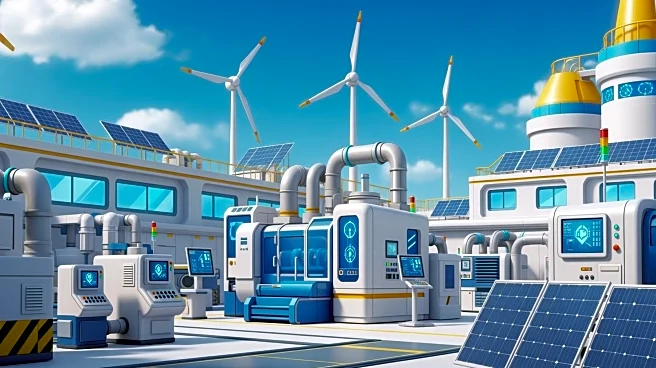What's Happening?
Nigeria is embarking on a significant energy transition to reduce its carbon footprint and enhance its manufacturing sector. The country has committed to cutting greenhouse gas emissions by 47% by 2030
and achieving net-zero emissions by 2060. This ambitious plan is supported by a $410 billion Energy Transition Plan (ETP), which aims to mobilize private capital and green finance. The International Finance Corporation and the World Bank Group are involved in this initiative, pledging to mobilize $50 billion in private capital to provide reliable electricity to 300 million Nigerians by 2030. The transition focuses on expanding renewable energy sources like solar, wind, and hydropower, and integrating battery storage to make these sources more reliable.
Why It's Important?
This transition is crucial for Nigeria as it seeks to diversify its economy away from hydrocarbons, which have historically been a major revenue source but are now seen as a riskier economic foundation. By investing in renewable energy, Nigeria aims to create millions of jobs, improve infrastructure, and enhance industrial competitiveness. The shift to a low-carbon economy is expected to reduce dependence on imported diesel, lower production costs, and make Nigerian goods more competitive globally. Additionally, the transition could transform Nigeria into a regional powerhouse for petrochemicals by utilizing its natural resources and untapped mineral deposits.
What's Next?
The success of Nigeria's energy transition will depend on the effective mobilization of private capital and the implementation of supportive policies. New regulations are already allowing private firms to generate and distribute power, and mini-grid operators are expanding access to electricity in rural areas. The government is also testing electric buses in Lagos as part of its efforts to promote cleaner urban transport. As renewable energy becomes more affordable and oil revenues become less reliable, Nigeria's commitment to decarbonization could lead to significant economic growth and diversification.












